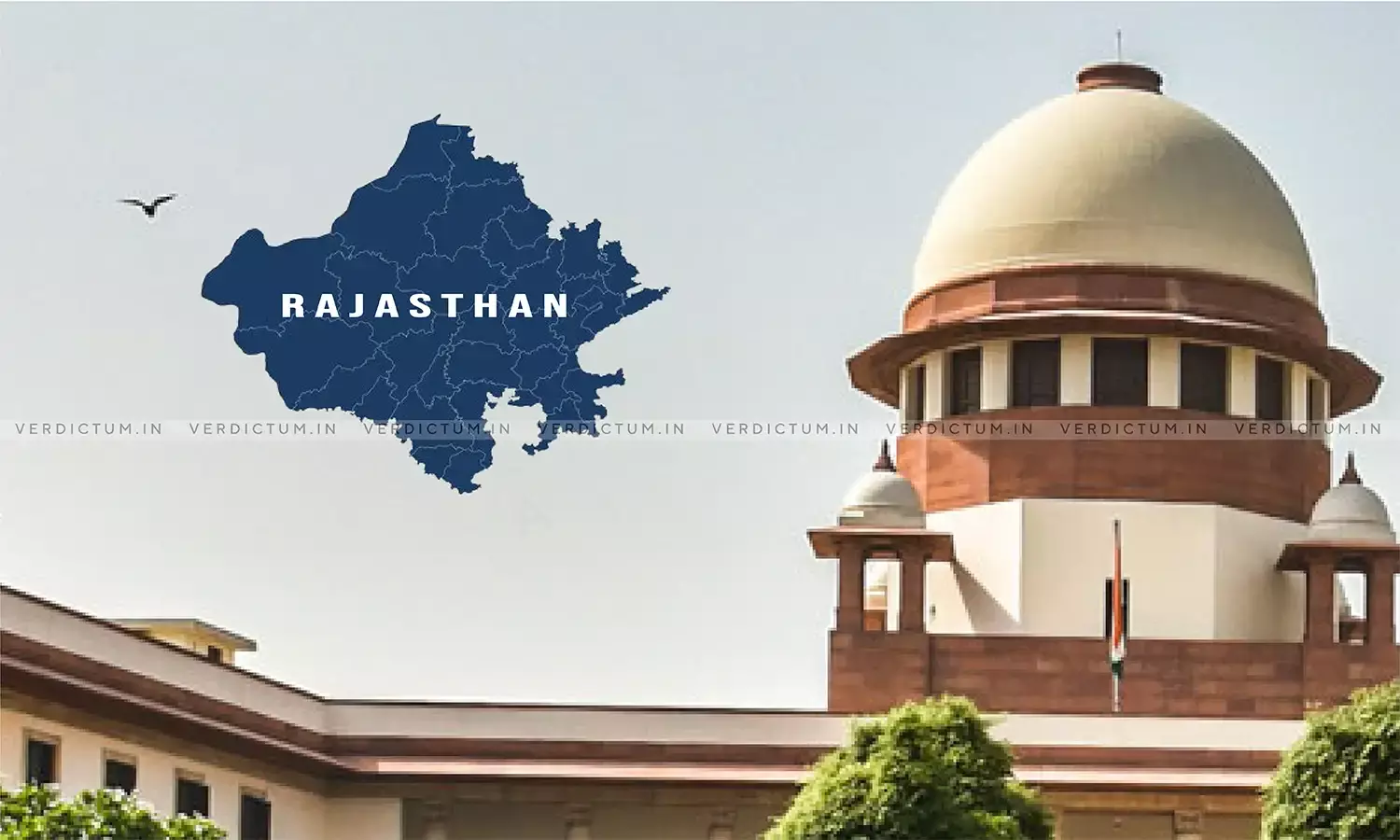Anti-Conversion Legislation For State Is In Process: Rajasthan Files Affidavit Before Apex Court In Plea Against Forced Religious Conversions
The Government of the state of Rajasthan has filed an affidavit before the Supreme Court stating that it is in the process of enacting its own legislation concerning conversion from one religion to another.
The Affidavit stated, "That the State of Rajasthan is in the process of bringing its own legislation and till such time will strictly abide by the law on the subject, guidelines or directions passed by this Hon'ble Court."
The Affidavit was filed in the Petition filed under Article 32 of the Constitution seeking appropriate direction to the National Investigation Agency or Central Bureau of Investigation or the National Human Rights Commission or the National Commission for Protection of Child Rights to investigate the root cause of death of a 17-year-old girl named Lavanya who committed suicide and died on January 19, 2022, in Thanjavur, Tamil Nadu. The Petitioner also sought a declaration that fraudulent religious conversion and religious conversion by intimidation, threatening, deceivingly, and luring through gifts and monetary benefits offends Articles 14, 21 and 25 of the Constitution.
The Supreme Court had in September 2022 issued notice and sought a response from the Central Government.
The Affidavit of Rajasthan also stated, "That in view of clause (b) & (c) of the aforesaid prayer, the Respondent/State of Rajasthan is filing the present affidavit to apprise this Hon'ble Court that the State of Rajasthan does not have any specific legislation with respect to conversion from one religion to another. Although the State Government is strictly adhering to the guidelines issued by this Hon'ble Court, Hon'ble High Court of Rajasthan laid down in different cases and the Centre."
The Gujarat Government had also filed an affidavit before the Supreme Court supporting the plea against forced religious conversion. It had submitted that the right to freedom of religion does not include a fundamental right to convert other people to a particular religion. The affidavit had mentioned the Gujarat Freedom of Religion Act, 2003, which provides for the prohibition of conversion from one religion to another by use of force or allurement or by fraudulent means for the matters incidental thereto.
The writ petition before the Apex Court had also sought directions from the Law Commission of India to prepare a report and a bill to control religious conversion by intimidation, threatening, and deceivingly luring through gifts and monetary benefits.
The questions of law involved in the Petition were – "i) Whether deceitful religious conversion offends Articles 14, 21 and 25. ii) Whether Centre is obligated to control deceitful religious conversion. iii) Whether Apex Court can direct the Law Commission to draft a Bill."
In December 2022, the Supreme Court, while adjourning the matter, had observed, "Everybody has a right to choose religion. But that does not mean that you can convert by luring. If you want to help a particular community, you help. But the purpose of charity should not be conversion. Every good work is welcome. But what is required to be considered is the intention. The intention must be very clear".
Previously, in November 2022, the Supreme Court had observed that religious conversion by force or allurement is a very serious issue that can affect the freedom of religion and conscience and the security of the nation. The Court had observed that there may be freedom of religion but no freedom for forced conversion. The Court said that a "very difficult situation" will emerge due to such religious conversions and asked about the action proposed to be taken by the Union of India against conversion by force.
Upadhyay had also filed written submissions in the matter and had said that wrongful religious conversion directly offends the right to life, liberty and dignity guaranteed under Article 21 and that predatory proselytization tears apart the fabric of the communities where it occurs and has led to social disorder and unrest.
Upadhyay had submitted that due to Centre's and States' inaction, many mosques and churches have become epicenter of black magic, superstition and religious bigotry and the ultimate purpose is to convert economically weaker sections including scheduled castes and scheduled tribes and likewise, many maulvis and pastors are converting poor people by intimidating, threatening, deceivingly luring through gifts and monetary benefits.
It was submitted by Upadhyay that there is massive foreign funding through money laundering and FCRA to NGOs and individuals from Gulf and Western countries to convert Indians. The Petitioner in this regard had said, "Although, Centre has cancelled the FCRA license of few NGOs but neither it amended the FCRA, Money Laundering Act, Benami Property Act and Black Money Act nor it changed the VISA Rules for religious preachers and missionaries."
Cause Title: Ashwini Kumar Upadhyay v. Union of India and Ors. (W.P. (C) 63 OF 2022)



